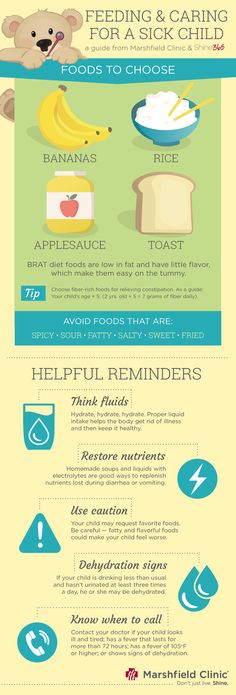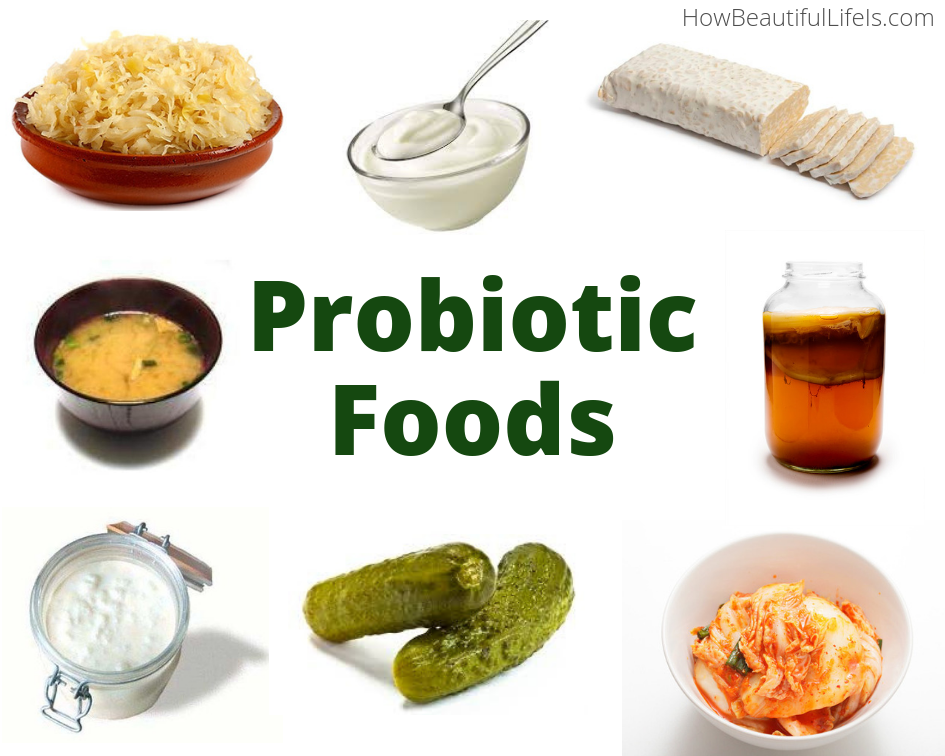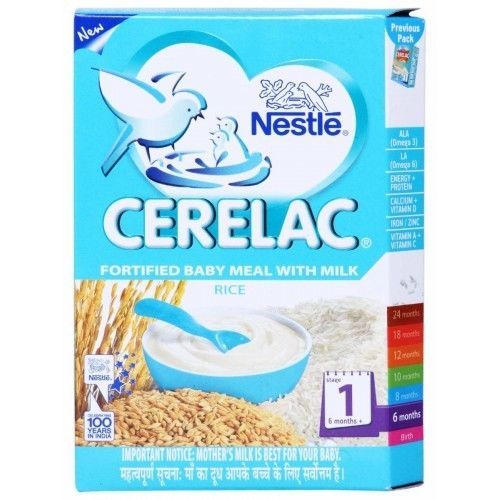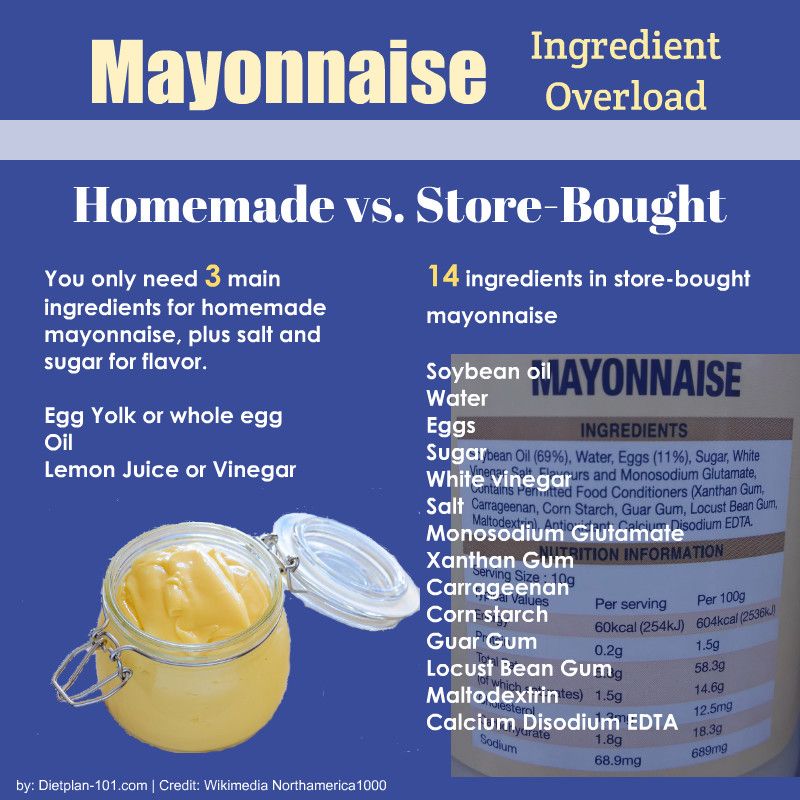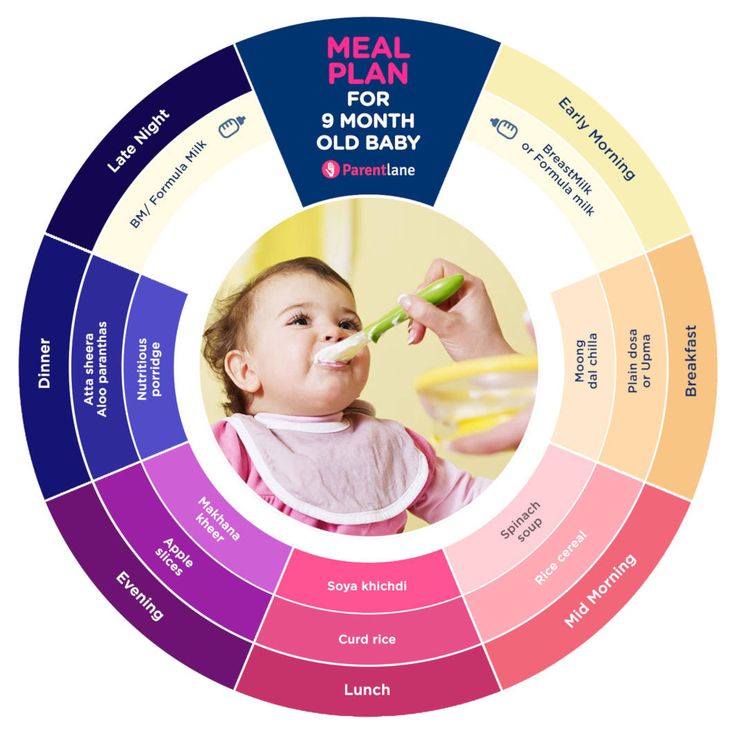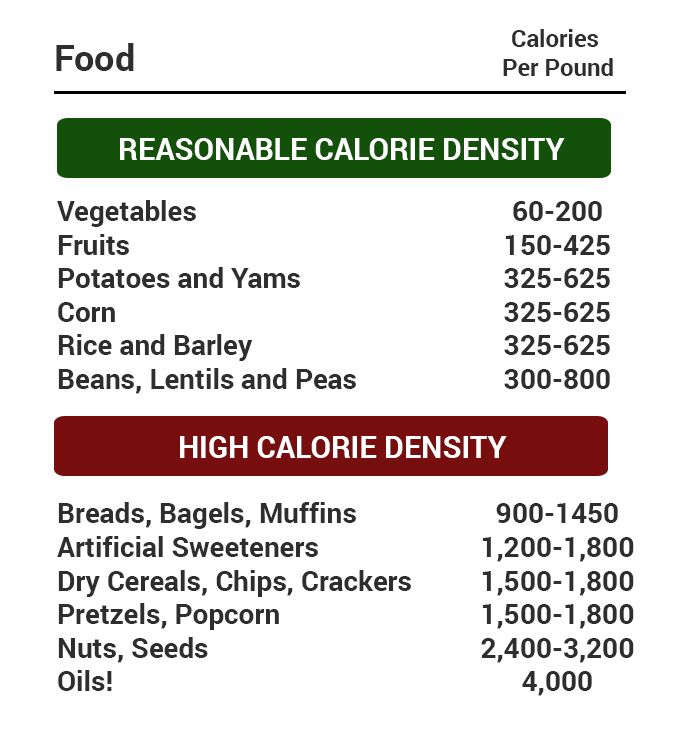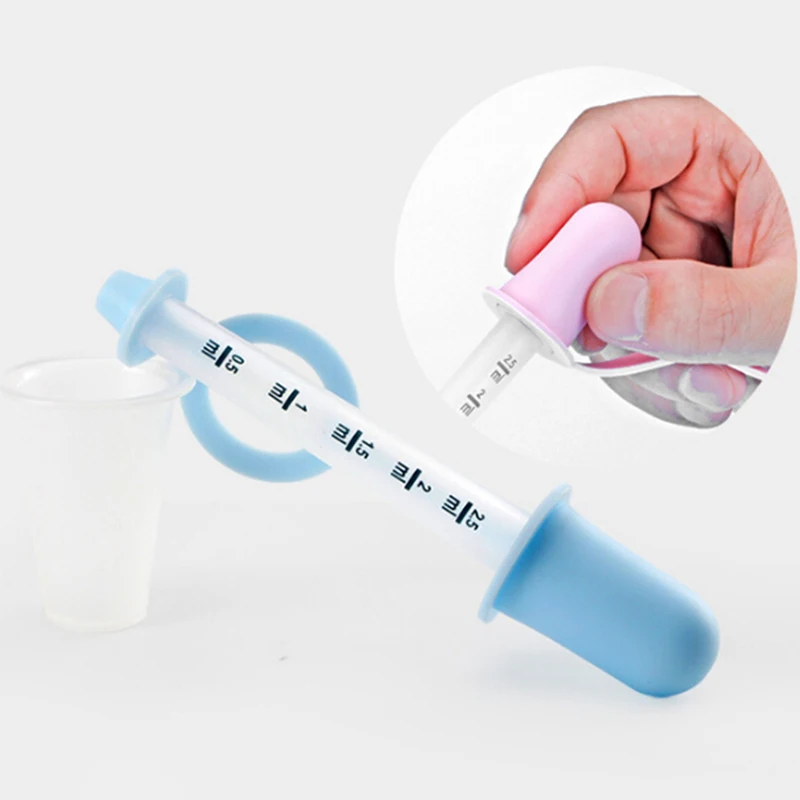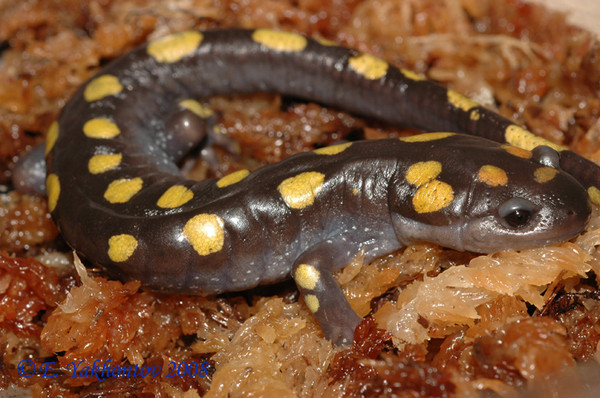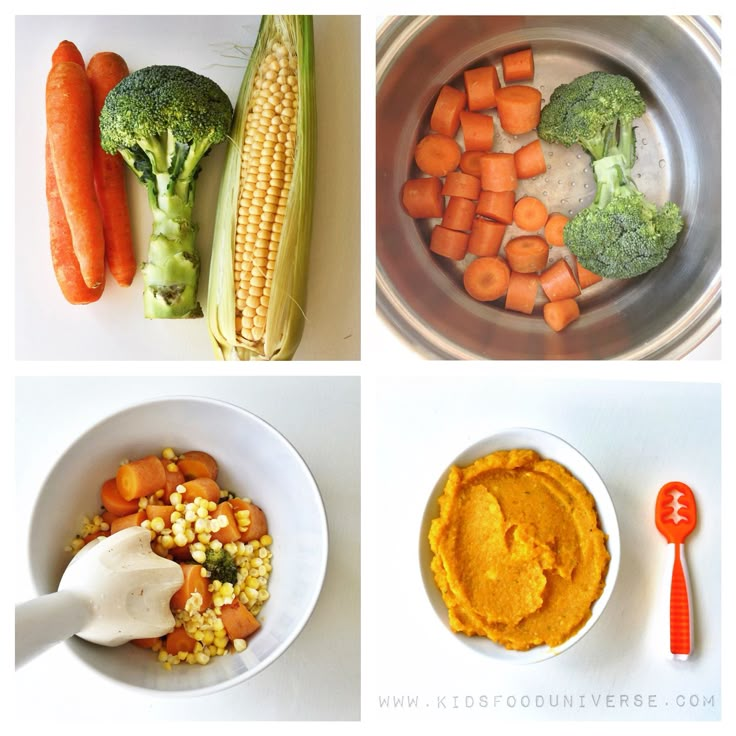Sick baby food
What should my sick child eat and drink?
It wasn’t so long ago that doctors would advise parents to give sick children only “BRAT diet” foods: bananas, rice, applesauce, and toast. The reasoning was that bland, low-fiber foods would be less likely to irritate an upset stomach and would produce less stool. Now the BRAT diet is no longer recommended since it lacks nutrients. Instead, the American Academy of Pediatrics (AAP) recommends that children go back to eating a regular, well-balanced diet within 24 hours of getting sick.
Don’t back off on breastfeeding
Suggestions for feeding infants with illness include the following:
- Breastfed babies should continue to breastfeed, even more than before. Breast milk is easiest on your child’s digestive system, and the immune factors your body produces in response to your child’s illness give an important boost to your child’s immune system.
- Infants on formula should continue to formula-feed unless their health care provider recommends otherwise.
- Watch for dehydration. Signs of dehydration include fewer wet diapers, lack of tears during crying, fever, dry mouth, weight loss, extreme thirst, listlessness, and sunken eyes. Sunken fontanelles (the soft spots between the bones of the skull) may also be noticeable.
- If your child is younger than 6 months of age, do not give water or any fluids other than breast milk or formula without consulting your baby’s health care provider.
Follow your child’s lead
For feeding older children, here are some guidelines:
- Don’t make your child eat if she has no appetite. There is no need to force her to eat. When possible, offer small amounts of food throughout the day instead of larger meals. As long as she’s drinking liquids and staying hydrated, solid foods aren’t necessary.
- Don’t restrict food when he feels up to eating. ( The old adage “starve a cold, feed a fever” is actually a myth.)
- Consider giving your child probiotics.
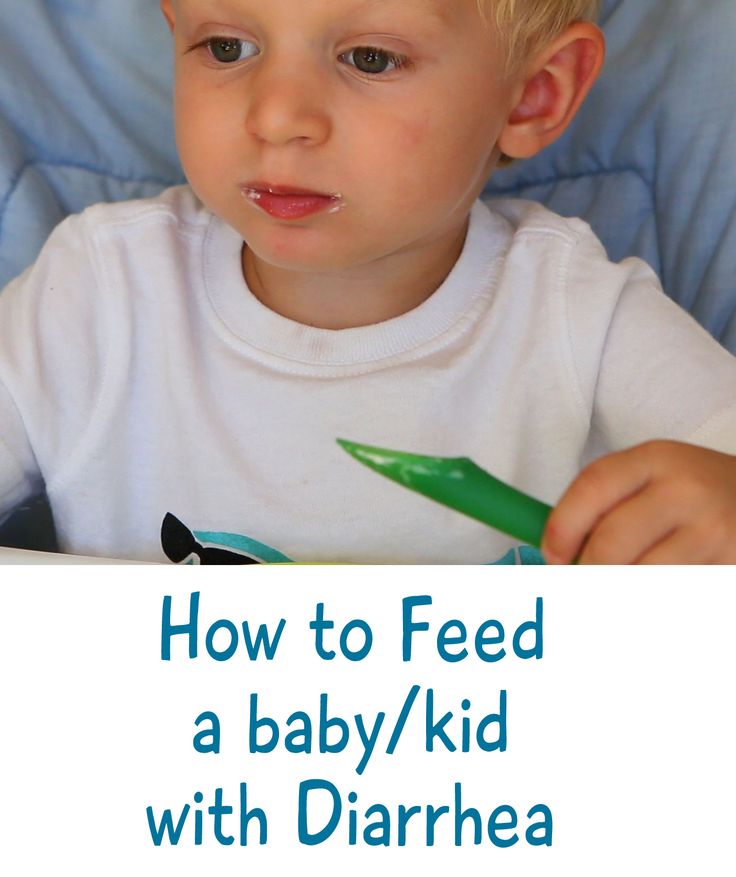 They stimulate the growth of healthy bacteria in the gastrointestinal tract. Yogurt (2–6 ounces twice a day) is the easiest source of probiotics. Kefir is another popular option. Both yogurt and kefir are available in frozen forms, which may be more appealing since they are cold, dissolve slowly on the tongue, and are similar to ice cream.
They stimulate the growth of healthy bacteria in the gastrointestinal tract. Yogurt (2–6 ounces twice a day) is the easiest source of probiotics. Kefir is another popular option. Both yogurt and kefir are available in frozen forms, which may be more appealing since they are cold, dissolve slowly on the tongue, and are similar to ice cream. - Generally, starchy foods (dried cereals, bread, crackers, noodles, mashed potatoes, and rice) should be offered in addition to the child’s regular diet, while fatty foods and sugary foods (including beverages like soda) should be avoided.
- If your child is vomiting, the AAP recommends that for the first 24 hours, you “keep your child off solid foods, and encourage her to suck or drink small amounts of electrolyte solution, clear fluids such as water, sugar water (1/2 tsp. of sugar in 4 ounces of water), popsicles, and gelatin water (1 tsp of flavored gelatin in 4 ounces of water).” Other possible fluids include diluted apple juice (equal parts juice and water), small amounts of ginger ale, and clear coup broth (cooled).
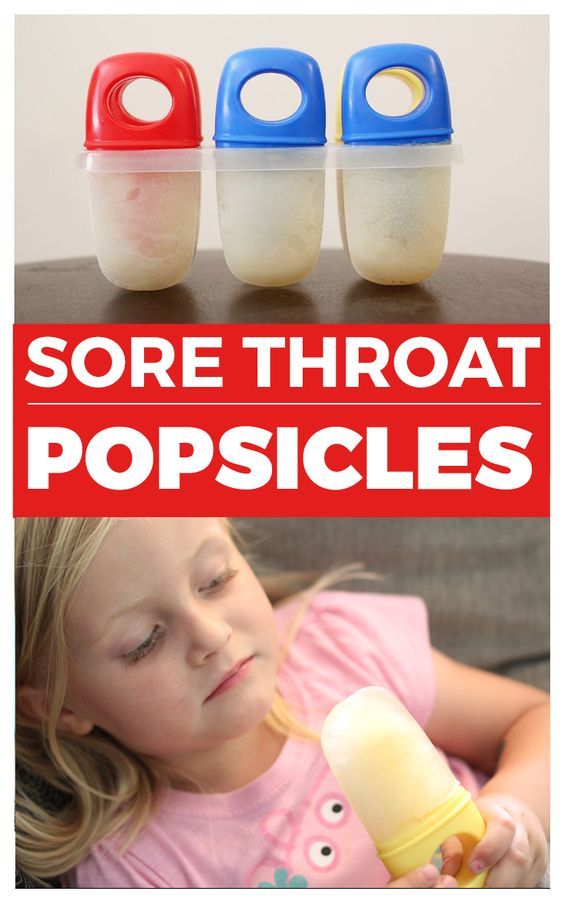
Give favorite fluids
When giving clear fluids, the type you choose may not be as important as how much your child drinks. A randomized study of 647 children ages 6 months to 60 months with mild gastroenteritis and minimal dehydration at a pediatric clinic in Toronto, Ontario, compared treatment focused on electrolyte solution with use of diluted apple juice and other preferred fluids. The research team found that fewer children who received apple juice or other preferred fluids needed follow-up care with intravenous fluids for dehydration than children in the electrolyte solution group. So give your child what he likes.
If your child is unable to keep clear liquids down—if even small sips cause vomiting—or if the symptoms worsen, contact your child’s health care provider right away.
Last updated September 25, 2021
Feeding a Sick Baby – Mummy Cooks
Feeding a Sick Baby – Mummy Cooks Skip to content Back to Advice Siobhan BerryOne of the most frequent questions I get asked is what do I feed my baby when they are unwell.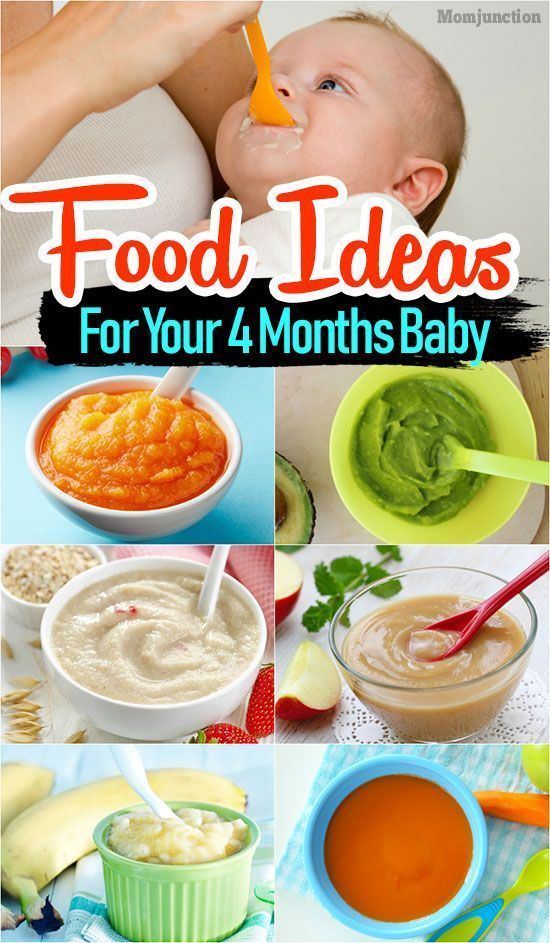 Here I have put together some tips and recipes for when your baby is feeling unwell with a sore throat, a cold, flu, diarrhoea or constipation and simply won't eat. Colds and flu are very common with the change of seasons. Sometimes after doing everything we possibly can, our babies can still pick up a sore throat or a bug. It can be tricky feeding your baby when they are sick as they may have lost their taste for food, and nothing appeals to them. It is important to give foods rich in vitamins and liquids which will help shorten the sickness and increase hydration levels.
Here I have put together some tips and recipes for when your baby is feeling unwell with a sore throat, a cold, flu, diarrhoea or constipation and simply won't eat. Colds and flu are very common with the change of seasons. Sometimes after doing everything we possibly can, our babies can still pick up a sore throat or a bug. It can be tricky feeding your baby when they are sick as they may have lost their taste for food, and nothing appeals to them. It is important to give foods rich in vitamins and liquids which will help shorten the sickness and increase hydration levels.
I have also included some tips on how to get back on track as soon as baby is feeling better.
Here are some tips on when your baby is sick:
- That horrible feeling of a stingy sore throat can cause your baby to become so under par. Vitamin C and Vitamin B-6 are important for boosting the immune system so stick to fruits and vegetables.
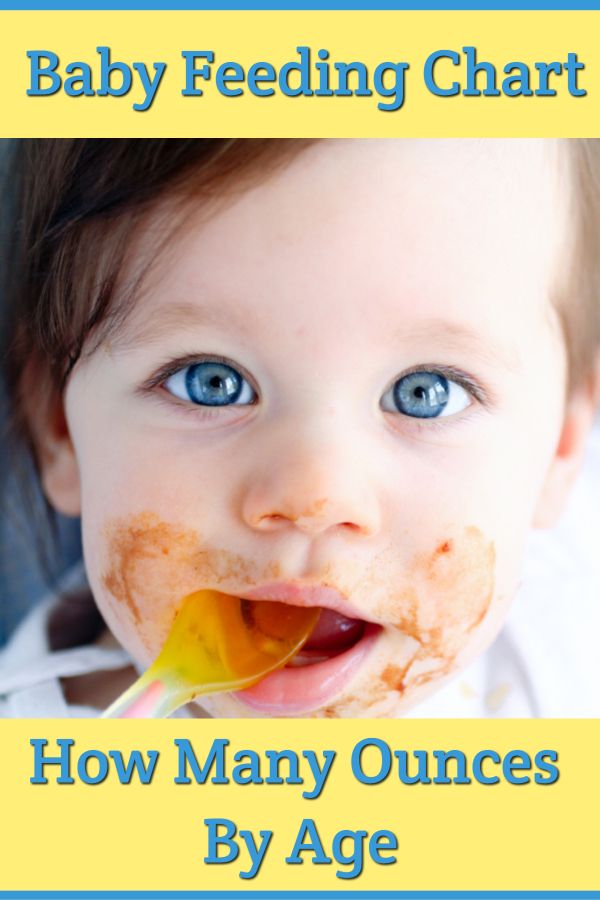 Did you know that ginger is considered a folk medicine? This is a great one for fighting off bugs and infections.
Did you know that ginger is considered a folk medicine? This is a great one for fighting off bugs and infections. - Colds are difficult to avoid as there are so many strains. It is so important to be feeding your baby lots of fruits and vegetables high in Vitamin C and antioxidants. They are invaluable for protecting the immune system. Remember with a cold you can have a stuffy nose, a cough and even headaches. Your baby will have a lower sense of smell and taste so they might not be so enthusiastic about food.
- The flu is one that nobody wants to have, young or old. Having a high temperature, aches and pains and even queasiness are all symptoms of the flu. Stick to lots of fluids to prevent dehydration and mainly bland foods that have less texture and are not very spicy.
- Fluids are so necessary when your baby has diarrhoea as they can become quite dehydrated. It is best to stick to binding foods that are not as runny - like plain pasta, rice or banana. Try to stay away from sweet ingredients too as sugar can worsen diarrhoea.
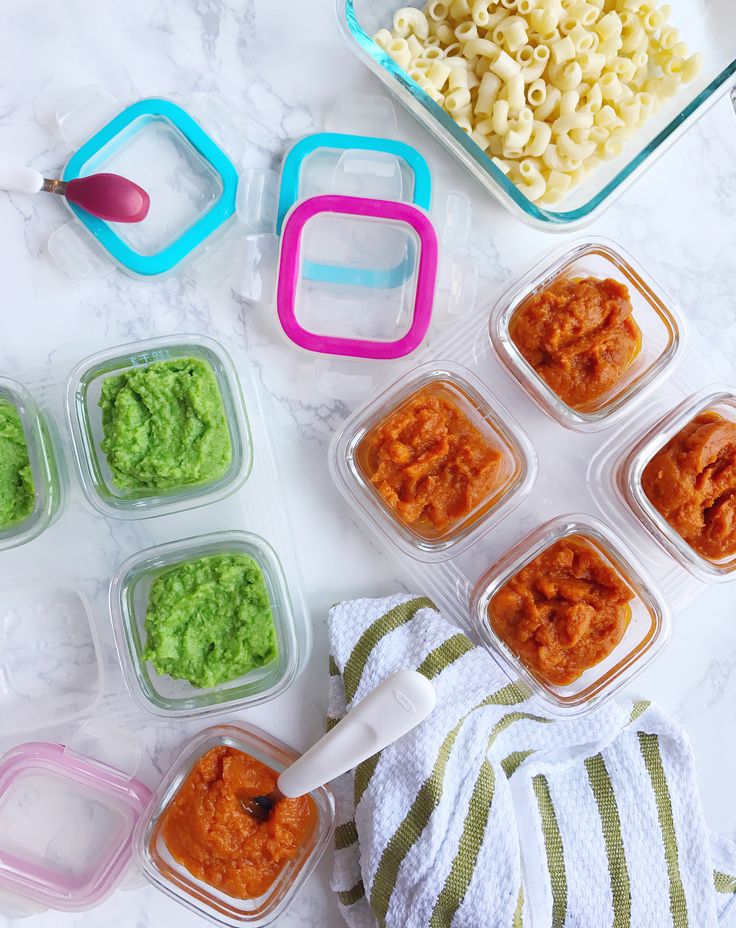
- Fruits and vegetables such as prunes, apples, oranges, celery and carrots are good high fibre foods to have when your baby is constipated. Water is key too for keeping your baby's stools regular.
Try some of these recipes when your baby is sick or not eating:
- Peach Purée with Ginger and Basil. That fresh, zingy flavour will give that added kick when your baby's sense of taste is reduced.
- Vegetable and Lentil Purée. This is packed full of nutritious vegetables and the winner for colds, garlic.
- Hearty Homemade Chicken Soup. This is just the perfect pick-me-up when your baby is sick with a cough or cold.
- Polenta Chips. They are good to try as they are soft and not as jam packed with flavour as other recipes.
- Boiled Egg and Avocado Toast. This is quite plain and gives binding substance.
- Apple, Cinnamon and Prune Purée. This is great for getting more fibre.
There's nothing worse than feeling under the weather so wrap your little one up well in the cold weather and up their intake of fresh fruits and vegetables to boost the immune system.
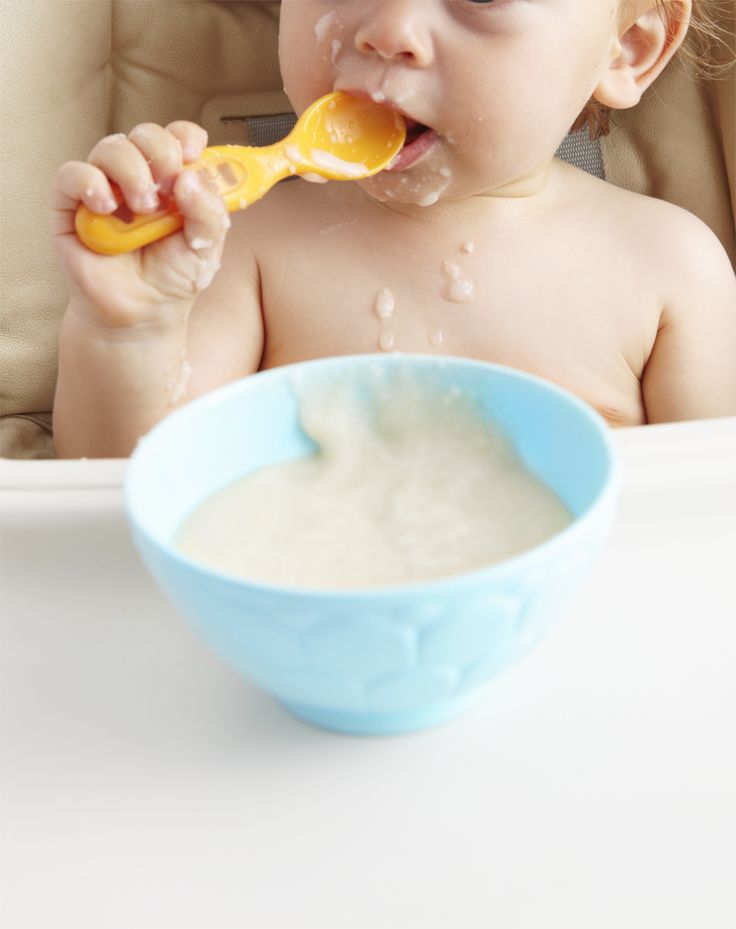
Tips on getting baby back on track when they are feeling a little better
When your baby is sick you would literally give them anything they would eat so that they keep hydrated and gain energy back. This is all fine but it’s important to get back to your baby’s routine as soon as possible. Here are a few tips on how to achieve this.
- Start off by offering your child their favourite meal. They are only building their appetite back up so don’t be worried if they do not eat it all.
- If your child struggles with finger food then hold off until they are back to normal before offering.
- Continue to offer purées that are high in Vitamin C as this will help the body recover.
- Take each day as it comes and continue to offer foods at each meal. Try not to offer alternatives if your baby does not accept the foods. Remember this may go on for a few days and by offering alternatives you will only prolong the delay in getting back onto normal foods.
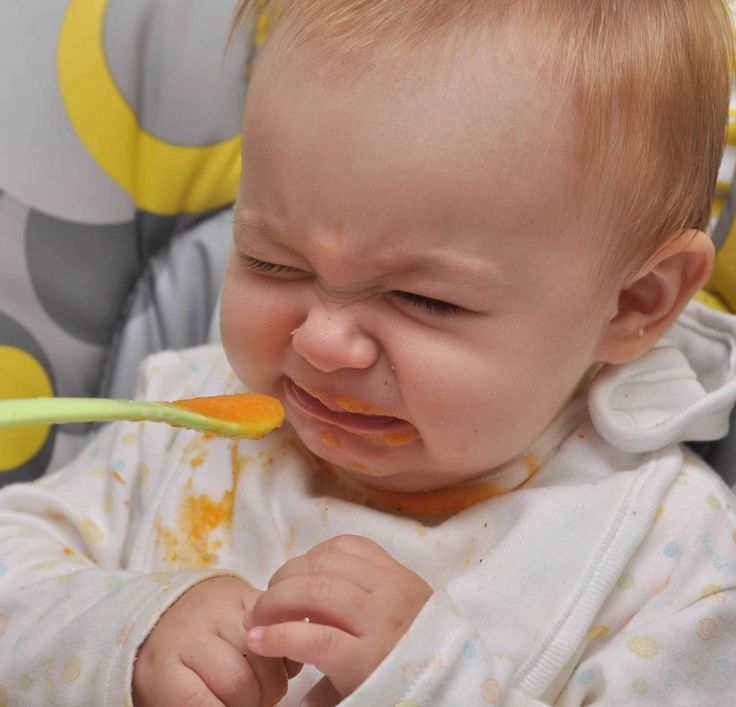
- At all times make sure your baby is getting enough liquid, after that it might just take a few days for them to get their appetite back.
Latest Recipes & Advice
1 / of 4
You may ALso Like
Check out our best sellers...
1 / of 10
Feeding a sick child
Publication date: 12/15/2016 08:22
April 22nd, 2016 Olga.
While the child grows up, he will be ill with various diseases more than once. About 80% is accounted for by SARS. Any disease (we are now talking about the flu, SARS) is characterized by poor health of the child - malaise, cough, runny nose, weakness, and maybe intestinal upset. And all this affects the appetite of the child. If a child has caught a cold, mothers always ask themselves the question: how to feed him properly? Proper nutrition of a sick child will help to quickly cope with the disease. nine0003
During an illness, the baby always has a poor appetite. There are physiological reasons for this:
- at elevated temperatures, blood circulation in the stomach slows down. because the body sends blood to vital organs: the heart and lungs. The process of digestion and assimilation of food slows down and the child needs less food than usual;
- during an illness, the liver actively fights toxins, the products of the vital activity of viruses and the decay of damaged cells, so a large amount of food carries an additional burden; nine0014
- the toxins themselves poison the body and the child, when he feels bad, not at all before eating;
- blocked nose, sore throat, difficult to swallow.

- Nutrition should be appropriate for the child's age;
- during illness, do not introduce new foods into the diet;
- food should be sparing - liquid or semi-liquid;
- make small meals if the baby does not want to eat, and the number of feedings can be increased;
- if the child refuses to eat, let him drink more fluids (water, compote, fruit drink, rosehip broth). nine0014
From the diet during illness should be excluded:
- Hard-to-digest foods - fatty meat, whole grain cereals, fresh vegetables and fruits.
- Foods harmful to the liver - fatty dairy products, chocolate, vegetable oil, lard, confectionery.
- Rough, which can damage the mucous membrane - nuts, seeds, crackers, cookies.
Useful menu
During an illness, a child needs food that is well absorbed by a weakened body. Therefore, chicken broth, vegetable soups, stewed and boiled vegetables are perfect for feeding a child during SARS.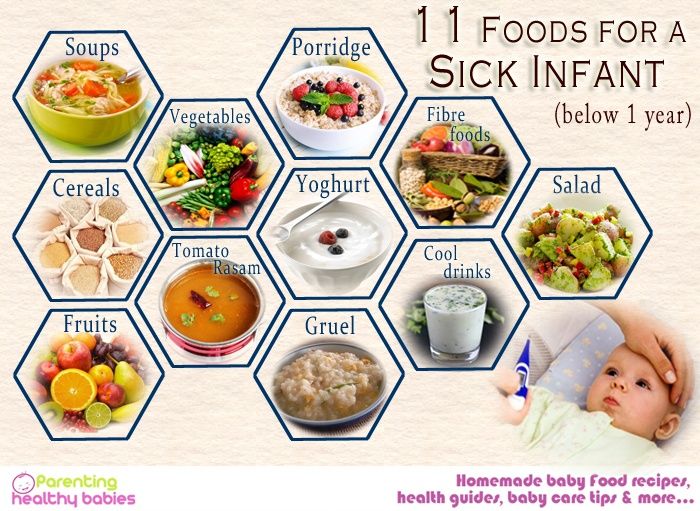 nine0003
nine0003
To avoid mechanical irritation of the stomach, choose foods that are low in fiber. What foods are low in fiber? These are potatoes, cauliflower, pumpkin, rice and semolina, animal products.
Potatoes are especially delicate in fiber, so include mashed potatoes in your menu more often. You can cook mashed potatoes with sausage, cheese. Beautifully decorate the dish.
Animal protein must be present in the diet of a sick child, since it is a building material for protective antibodies. They are rich in lean meat - veal, beef, lean pork. For soups, use secondary broths from turkey meat, rabbit, chicken breast. nine0003
What else can you feed a child during illness? Yogurt helps out well, especially homemade, with the addition of berries.
Cook porridge for the child: semolina, oatmeal, you can also add berries from jam or defrosted.
A sick child needs vitamins. You can make vitamin drinks from rose hips, berries, cook jelly, dried fruit compote, berry juice.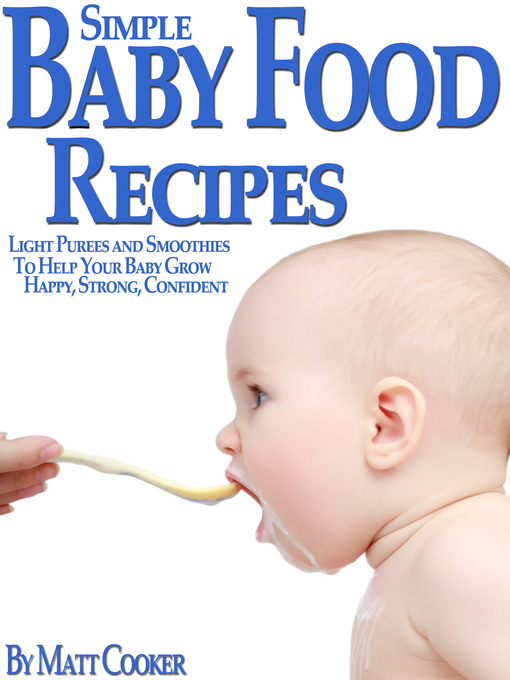 . Such drinks will alleviate the condition of the baby if the throat hurts. But with indigestion, milk should not be given at all. nine0003
. Such drinks will alleviate the condition of the baby if the throat hurts. But with indigestion, milk should not be given at all. nine0003
To increase the appetite of the dish, it is desirable to arrange it beautifully so that the child immediately has a desire to eat it.
Nutrition for a convalescent child
After an acute period of illness, a period of convalescence begins, when the baby is on the mend and nutrition during this period plays an important role. The food of a recovering baby should be rich in energy in order to restore strength, contain minerals and vitamins, the food should be well absorbed.
As soon as the symptoms of the disease subside, do not rush to pounce on a child with enhanced nutrition, it will take a few more days to restore digestion. Continue to follow the diet, adding lean meat and fish, cheese, eggs, boiled vegetables and fruits to it. nine0003
Ideal for casseroles, puddings, steamed cutlets, vegetable soups. Introduce fruits and vegetables into the diet and do not forget about sour-milk products that will help restore the disturbed intestinal microflora.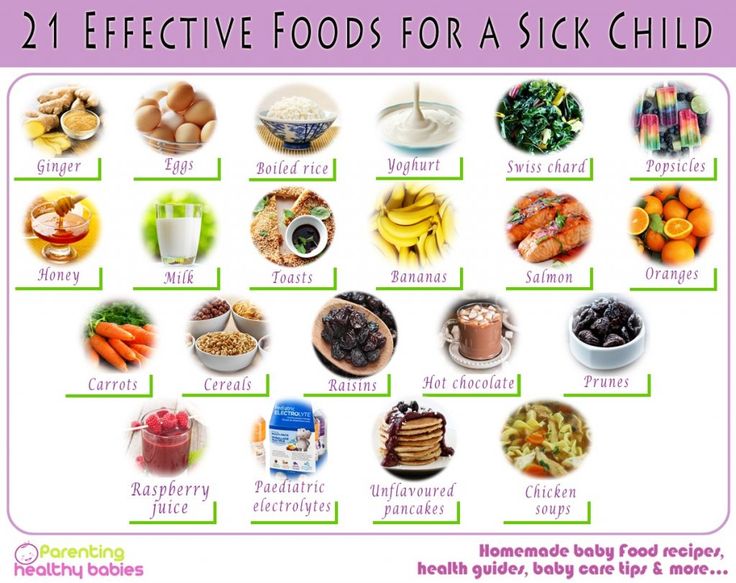 Let during this period the food be fractional, the child eat a little. And when the body gets stronger, the child will return to a normal diet.
Let during this period the food be fractional, the child eat a little. And when the body gets stronger, the child will return to a normal diet.
Choosing tactics
When feeding a sick child, parents should remember that it is impossible to force-feed a child!
We provide a diet with easily digestible products. Some parents find it difficult to feed the baby during illness, he categorically refuses to eat. Psychologists advise not to turn feeding into a circus with musical numbers so that the child eats "well, at least one spoonful."
If a child refuses to eat once, it will not bring much harm to health. He will not remain hungry, but will ask for something anyway when his appetite wakes up.
And don't scold the baby if he doesn't want to eat. Appetite will be restored. nine0003
Information from the site: deti-i-vnuki.ru/pitanie-bolnogo-rebenka/
| Help service "Mercy"
WHERE YOU CAN DONATE
ITEMS AND PRODUCTS?
Donating clothes, sharing food, bringing care products, buying toys are perhaps the easiest and most understandable ways to help those in need.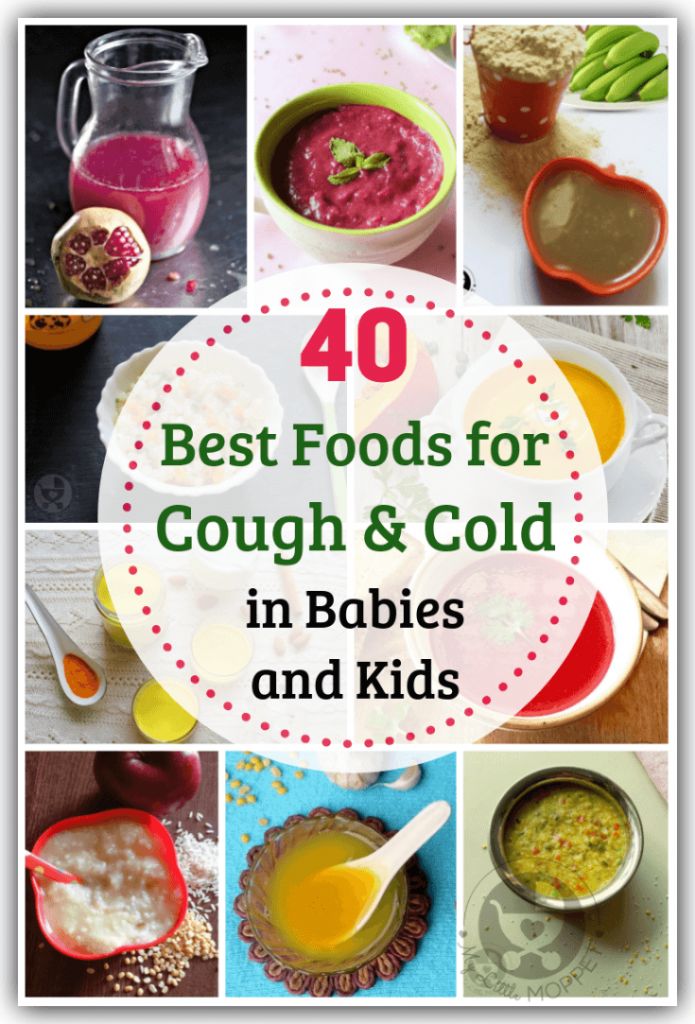 We have collected here different ways to help the wards of the service "Mercy".
We have collected here different ways to help the wards of the service "Mercy".
CLOTHES AND SHOES
Clean clothes and comfortable shoes, mainly men's
where to bring:
Angar of salvation
Women's clothing and shoes
Children's things
Baby strollers
Tysets
diapers
disposable diapers
Personal hygiene funds
HOUMENTIONA assistance
Crisis Center "House for Mom"
FOOD
Canned meat and fish
Cereals, pasta
Sweets for tea
Tea, instant coffee, chicory
Sugar
Sunflower oil
Instant food (Doshirak, Rolton, Maggi, Knorr, etc.)
Long shelf life dairy products
Baby food in sealed packaging
WHERE TO BRING:
Petitioner Work Group
Rescue Hangar
(In the Rescue Hangar, stew, mashed potatoes and instant soups are most in demand)
HYGIENE 0090
Adult and baby diapers
Disposable diapers
Toilet paper, paper towels
Household chemicals
Iodine, green
WHERE TO BRING:
Petitioner Group
Adult diapers
Disposable diapers
Bed-patient care products
Wheelchairs, toilet chairs and other medical equipment
WHERE TO BRING:
Home Care Service
Toothbrushes and toothpaste
Toilet paper
Soap
Shampoo
WHERE TO BRING:
Salvation hangar
Seni diapers (No.